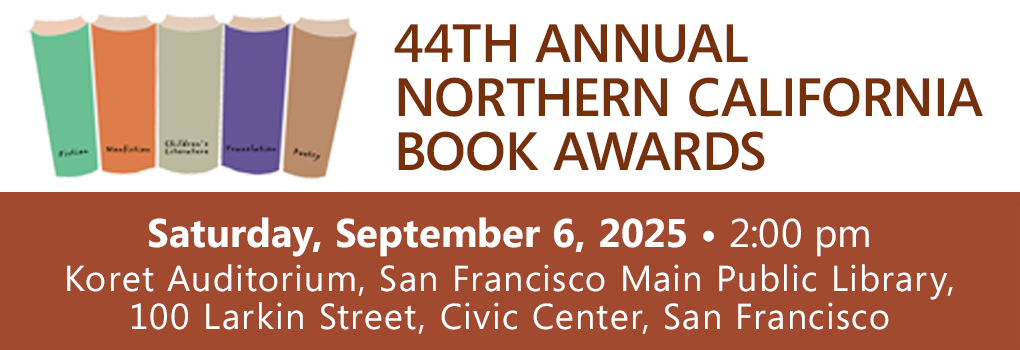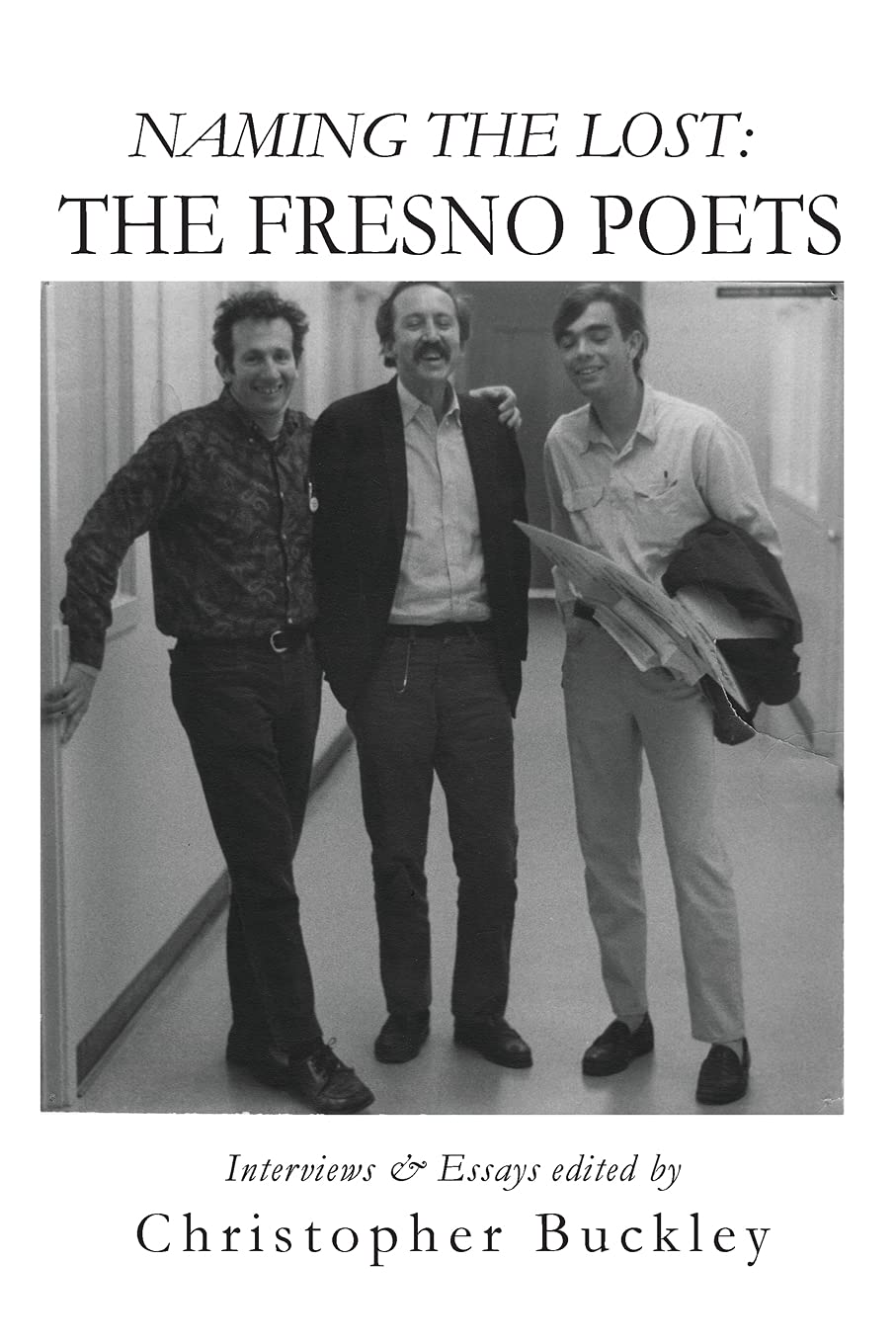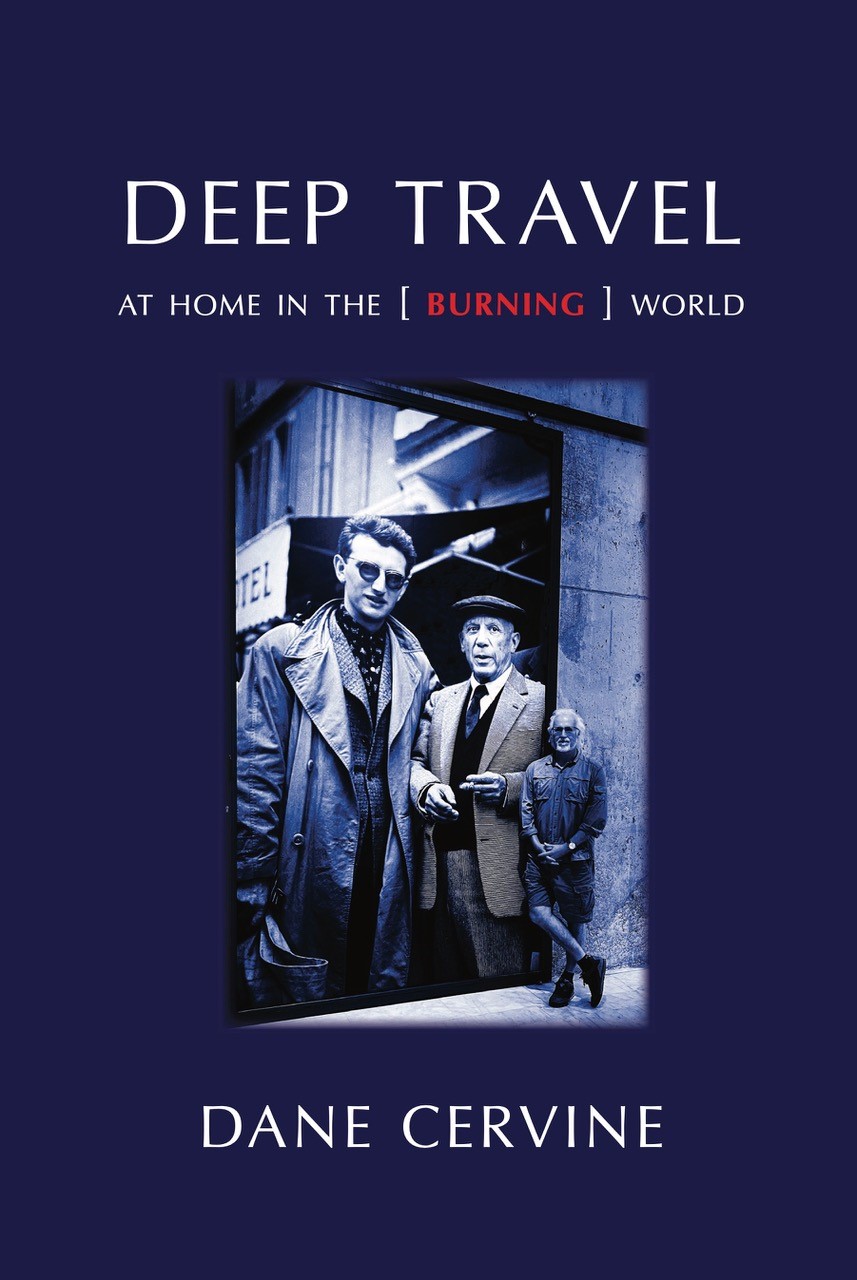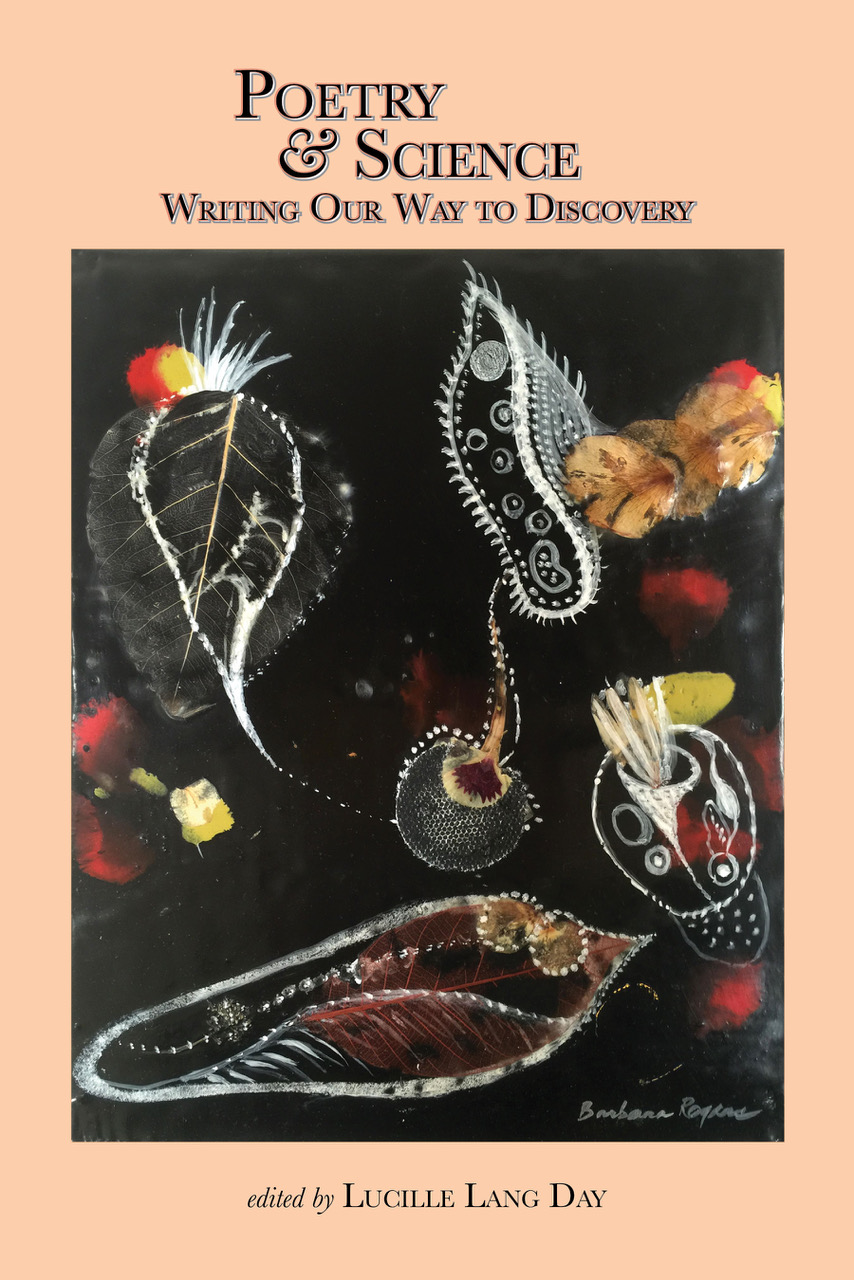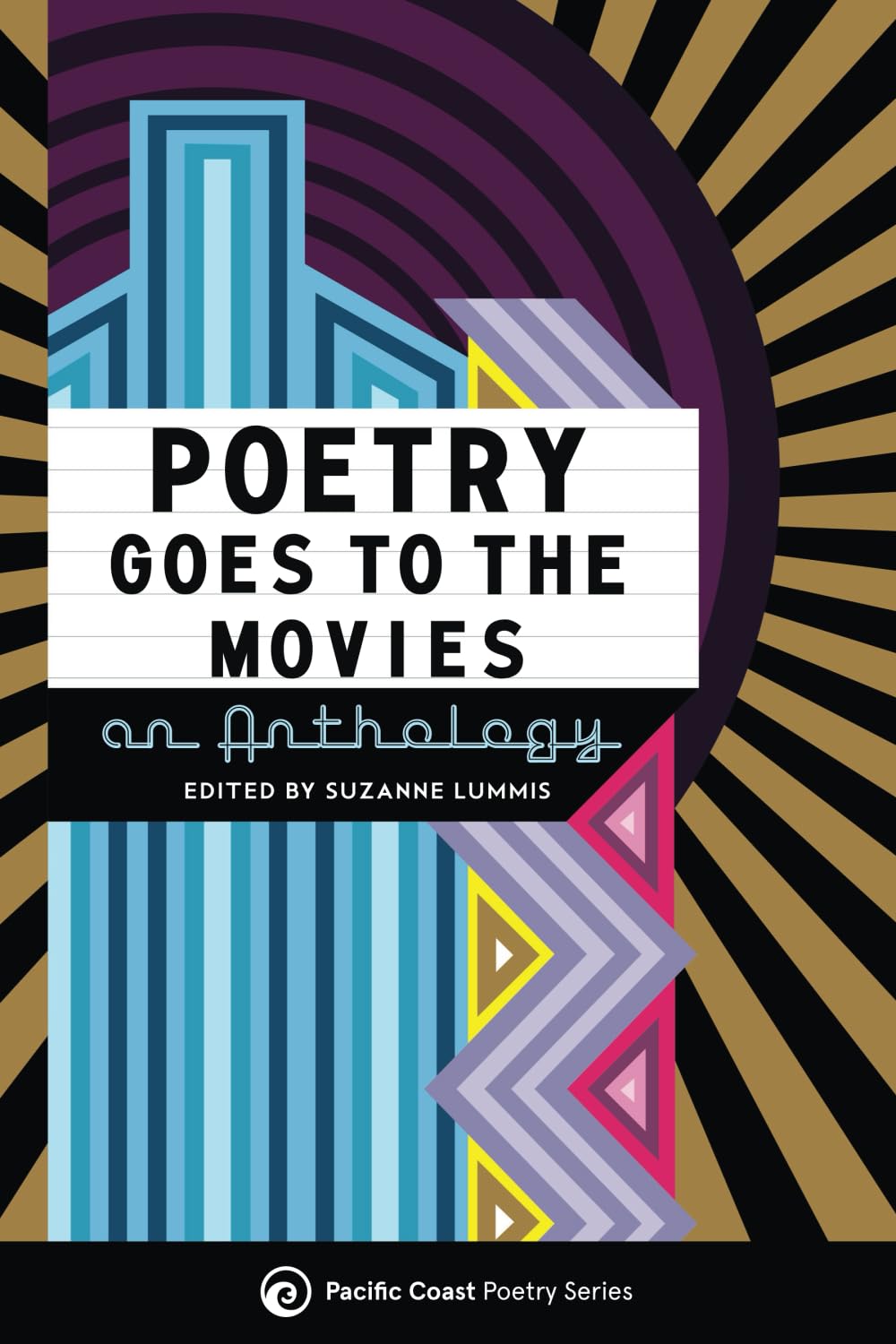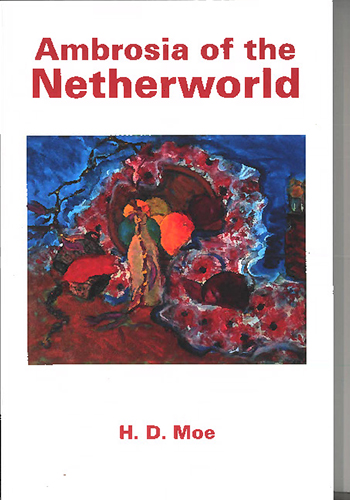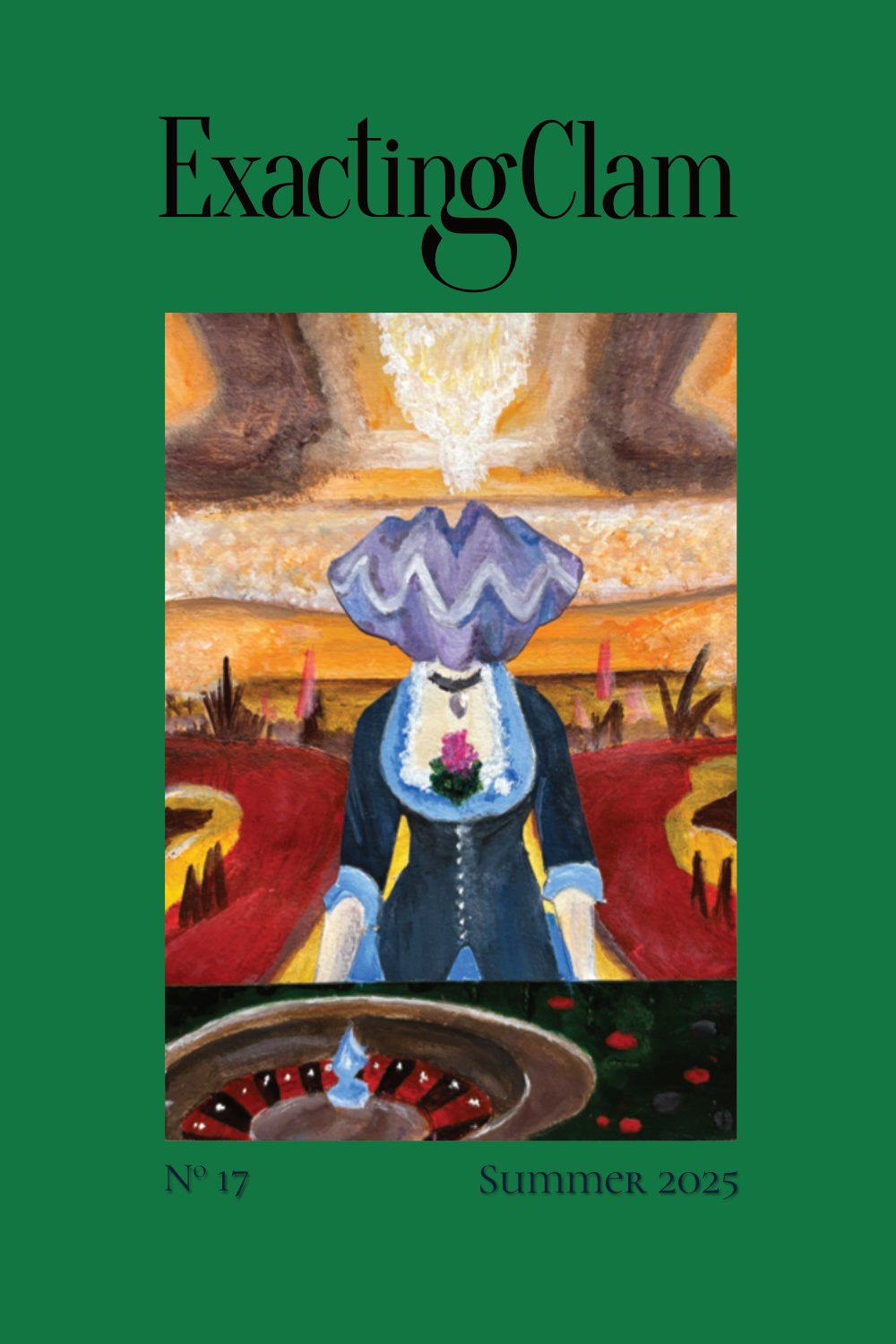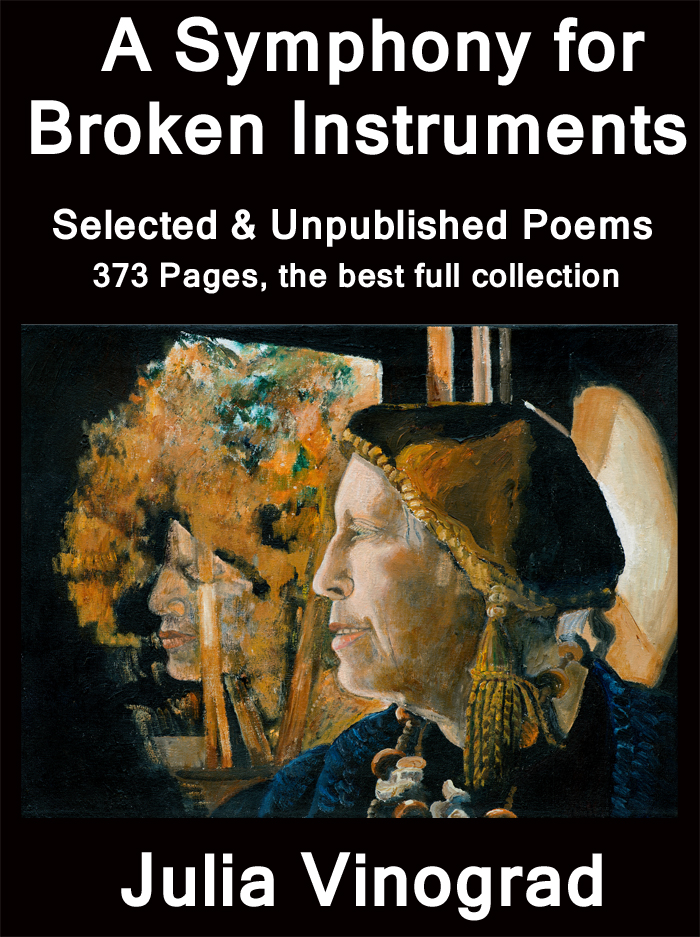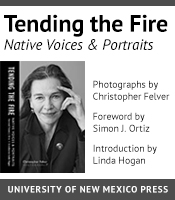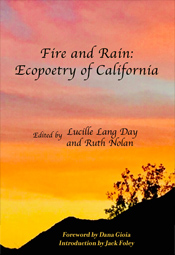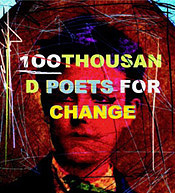
Swinging with the Afterbeat
by Bruce Isaacson
BEAT: The Latter Days of the Beat Generation, A First-Hand Account, by Andy Clausen, Autonomedia, Brooklyn, New York, 2018, 210 pages, $17.95 paperback, www.autonomedia.org/node/277.
ANDY CLAUSEN HAS written a wild, wide-spirited, and thoughtful memoir of his life as an after-Beat, full of authentic intensity, joy, and sad insight into America of our era. Clausen, seventy-four, has lived the life many poets dreamed of—big readings featured with most of the core famed writers, travels with Ginsberg, roommates with Corso, teaching at Naropa, eking it out at the track with Micheline, all while working construction for family bread. This memoir is as if an everyman lumbered into the café in the middle of the consciousness revolution, was inspired, then set out on a spiritual search for some honest value in the belly of a fun-filled, red-scared, America on a Beat vacation from its Puritan roots. In some ways, it was the dream life, and in others, particularly the economic, a nightmare.
There's an intimacy and honesty in the descriptions of personal experience that makes Clausen's memoir fresh, exciting, and important. You can hear his voice as if in poetry, as if in a room speaking to us, setting the best stories of his life in front of you so they can be seen from a few angles, brought to the mind, weighed for the fullness of their meaning. The writing compares well to the great fictional memoirs of the earlier era that sent a generation On the Road in a quest for meaning, truth, rebellion—as Brando said, whattaya-got. But Clausen brings his fifty years of life among key writers and a unique perspective to his party. It's not fame, names, or notice that makes this writing exciting—it's the simple, pure intensity of Clausen's delight in the road he's traveled, his satisfaction at the person he's become by the life he chose. What makes it important is his sad perspective on corruption in the human heart, seen in all quarters, among the famous and the infamous, government and literati. Clausen's is a perspective and argument to be reckoned with.
Good thing he wasn't depending on money, publicity or any such madness too, because Clausen was never made famous by his wild life—he seems always to be an after-Beat, a latecomer, loved by the core famed writers but somehow left aside by most generations that followed. Sometimes, he was put down for envy, sometimes for his own foolish doings, sometimes by the foolishnesses that dominate literary fashions of the times. Clausen does not spare himself in criticizing or even lampooning the literary world. But somehow, he arrives towards the end of his travels a last unspoiled Beat gem, an honest man struggling as best he can through the dishonest world. His unique position of intimacy with so many well-known writers, while living without fame himself, put Clausen in position to write this book.
This group of writers arguably had the broadest impact on western culture of any higher arts movement for nearly two hundred years. The changes from the mid-twentieth century that sprang autocthonic from the postwar era and were channeled and transmitted by the Beats are legion—sexual liberation, eastern philosophy/religion, ecology, gay rights, counter-culture, peace movement, etc.… As part of the generation behind, as one who loves this movement—the written words, what they accomplished, how they relaxed, deepened and moderated our world—Clausen has produced what seems to me here as an essential Beat text. He captures a rarity—the honest, patriotic love for America even among the rash, impetuous indiscretion of a revolutionary era.
His stories of how the Beats lived out their fame are priceless. Here, finally, are the best thoughts, stories and observations of Gregory Corso I've yet seen in print. Clausen has captured the magic of Corso's unique literary talent, and also, the pre-punk street theater that made the so-called 'pearl of the beats' a modern Villon, a once-in-a-millennium character. Clausen highlights Corso's aphorisms: "Rather my value be true than truth be my value." "You can't jump in the same river once." His perspective on Corso's poetry is on point—the lyrical genius in lines quoted, together with the value of master works that helped define the era such as Elegaic Feelings American and the poem "The American Way." These are still viewed as dangerous and too rarely taught in universities. Clausen's stories include the Beat parties and poker games that spawned Corso's verse, days at the Trieste and nights at the Chelsea. There's also Corso the street rat, the maddening, unmanageable jokester Shiva of egos. For example, at a major reading at USF:
Then he [Corso] sees my buddy Wojczuk who is genuinely one of the most decent and best spirited people I know. A clean liver.
Gregory lets everyone know "All the trouble in the world, all the suffering and incongruities and pain and anguish, is because of one man, and he is in the room right now, back there"—pointing—"Michael Wojczuk." People turn, Wojczuk has the biggest grin. I'm amazed, shocked.
(page 52)
The portrayal of Allen Ginsberg, perhaps Clausen's chief mentor and good friend, conveys Allen's intelligence, idealism, humility, and unique generosity for poets and poetry. Clausen was present at or recounts stories of some of Ginsberg's peak moments, such as Ginsberg's return from being crowned King of the Czech Mayday. Clausen is repeatedly assisted, lauded, and put on the big stage by Ginsberg on par with other major poets of the era. Yet as much help as Allen endeavored to provide Clausen, and other younger poets Ginsberg believed in (like Antler and David Cope), Clausen is also repeatedly denigrated, dismissed, victimized by literary mavens operating from pettiness, jealousy, even fag-baiting (page 46-47). Knowing Clausen, this is strange, yet he is approached with the pettier sentiments that couldn't be advanced toward the icon that Allen Ginsberg became for the era.
The last time I saw Allen, we had an eight hour-long discussion about the history of his generation of poets, what he really thought of the work of the poets he'd known, accompanied by anecdotes or observations.…He didn't swear me to secrecy, but I don't discuss it. To a few I trust, I say, "He spoke well of you and your work." That's it.
(page 81)
Clausen's stories are enlightening and fun, such as his interactions with Bob Kaufman, the North Beach poet sometimes known as the Black American Rimbaud, at the site of Kaufman's famed Thursday night reading.
I took a break and went into the Coffee Gallery for a beer. I saw Bob and knew the legend was that he hadn't talked since John Kennedy was assassinated. The closest stool was a few down from his. I took a couple pulls and turned back through the front window to crowded Grant Street. Then I reached for my beer and Bob said, 'Don't do that, Andy.' He was right; I'd grabbed the wrong glass. It was one that had been used as a cigarette butt repository.
I said, "Whoa, oh man, thanks."
He knew my name!
I was thrilled, even proud.
"You're probably wondering if I still write.…"
The story goes on (page 175), you can find and read the rest.
Clausen's intense 1960s meeting with his hero Neal Cassady—the street urchin of Denver grown to the figure that sent a generation off the grid in search of its fate—is told in humorous star-struck detail. Cassady is shown for his conversational quick mind, the good natured even warm mindful mien, the love for laughter. Clausen also conveys Cassady's tragic life story that tells a lot about our history—the years in San Quentin for one joint, family abandoned, death on the train tracks of San Allende, Mexico. The historical perspective is part of what makes the book brilliant. Clausen doesn't romanticize beyond the romance he feels. And he doesn't pull any punches about the self-destruction, poverty, and pain too typical of the lives of the best Beat writers. Nor does he gloss over the role of the predatory society in the near-unlivable lives of poor artists and workers of the era.
Clausen is essentially a true working-class, blue collar, laborer, who made himself a poet. He is an auto-didact, self-educated, who chose his life under the stars of a movement in the arts. As that life becomes less and less livable, moving from the idealistic sixties to the Reagan eighties to the Bush-Trump era that follows, his family falls apart, he can't protect his children, yet he stands up as best as he can for the poets and poetry of our age. This is the poet Ginsberg anointed as having "…inherited Neal Cassady's American Energy Transmission." In the end, it is the desperation and honesty in his tale of this inheritance that makes it true and believable and valuable. As when he admits to naming his son after Neal but misspelling the name on the birth certificate, so it's like Hopalong Cassidy. Or getting involved in what appears to be a justified fight at Naropa. Or shouting down co-intel provocateurs sent to make trouble for the poets. Though he always tries to explain himself, Clausen does not shrink from portraying himself in a negative light, or from admitting his blame. Maybe his education isn't the sort that will earn him honorary degrees, but he is brilliantly informed, more than many literati, yet always grounded and real. While he loves the life of a poet, it is his smart, realistic perspective on the social role of poets and poetry that gives the book a controversial weight:
…This marginalizing of poetry, gut poetry, folk, street, renegade mystic sexual revolutionary tribe's-the-glue poetry was the work of carefully selected censors of both fun and dissent, de facto commissars of boredom and purveyors of candy mountain pap promoting certifying as canon those nowhere trivial-content school anthologies, with teachers who taught it because they had to.
The big boys know how powerful poetry can be. They don't want another Beat uprising…advocating rejection of soul-stifling societal norms or exposing how governments behave.
A great poet, Leopold Senghor, became president of Senegal…wrote a great poem…about how America has to let Harlem energy into its fabric.…He lived in France for years and was a leader of the Negritude movement…Kim Chi-Ha played a big part in making South Korea more humane. The Franco fascists killed García Lorca. Pinochet made sure to get rid of Victor Jara. We know about Mandelstam, Marina Tsvetaeva, Khlebnikov.
Here mostly the poets kill themselves. Some do it quick and early, some go faking it till they can't, others just keep excusing their debilitating indulgences, some have accidents, some go babble.
(pages 171-172)
The book is full of Clausen's warm, funny stories of interactions with major literary figures, such as Vaclav Havel in Prague, turning on Brother Antoninus (William Everson), Abbie Hoffman in hiding, Ken Kesey, Maya Angelou, Andy Warhol, Marianne Faithful, Rene Ricard, Gary Snyder, Anne Waldman, Wavy Gravy (Hugh Romney), Ralph Ellison, William and Billy Burroughs, Diane di Prima, Peter Orlovsky, George Soros, Amiri Baraka, John Steinbeck, Michael McClure, etc. His stories and perspective partying with Charles Bukowski (Hank), Linda King, and Lawrence Ferlinghetti (pages 161-163) are not to be missed. Likewise, his poignant account of thoughts on the death of Allen Ginsberg (125-126), and his stories and perspective on betting at the track with Jack Micheline (140-143).
But Clausen pays equal attention, recounts stories of, and lauds in moving ways lesser-profile figures, who have important roles in our literary history. These include Kirby Doyle, Carolyn Cassady, Billy Robinson/William Finkelstein, Roger, Irvyne, and Hillary Richards, William Kunstler, Marty Matz, Nicanor Parra, Jack Hirschman, Istvan Eorsi, David Lerner, Robert Creeley, Herbert Huncke, Bobby Seale, Julia Vinograd, Paul Blackburn, Pedro Pietri, Peter Lamborn Wilson, Q.R. Hand, Eugene Brooks, David West heckled by Timothy Leary (page 145), Neeli Cherkovski, Raymond Foye, and more.
In the end, though, it's not the names or the crowd or even fecund stories that make the value of this book. It's two other things, both personal perspectives. First, Clausen as a misguided poetry waif, devoting his life honestly to the perspective of an outsider, where the heart of poetry truly resides, but where everyone around is pissed off and annoyed at such things, such grounded perspectives, being said aloud. For example, this story from Clausen's starting years which will stay in my memory forever:
[A well-known poet] was reading this poem about when you see that child from Vietnam with arms aflame you won't know what to do, you'll vomit, you'll try to run, you'll pull your hair out, you won't know what to do, and I yelled, "I'd try to put the fire out!" This really pissed people off, they stood and denounced me. "You're a prick!"
"Warmonger!"
"Fascist!"
"Redneck square!" Allen from the stage said, "Andy, you're hearing him inside out."
I answered, "I hear him from top to bottom and bottom to top, and outside in, I hear him all ways, man, Allen, man. I would try to put the fire out, every time."
I had a retro crew cut, a metal snap button cowboy shirt, new jeans, been working on the green chain (Blue river veneer, a plywood mill). I was young and full of idealism and overbearing chutzpah. I had no way of knowing my life force was misdirected… I was sentencing myself and, by implication, my family, and even my friends, to a life of outsiders. So outside, so contraire that many outsiders thought we were in.
I was so enraptured by penury and struggle, in my misguided approach to authenticity attainment, that I jinxed myself…
I'd try to put the fire out.
Finally, it's Clausen's personal love and devotion for the people in his life, the people who traveled his road with him. These include Beat jazz-blues poet Ray Bremser, and especially the fine Beat poet Janine Pommy Vega, with whom Clausen lived her final decades. Anyone who has lost someone dear cannot help but be moved by this writing. His poignant depictions of her brilliance, knowledge, and bravery do credit to the both of them.
The book was made by Autonomedia, a good press for outsider perspectives that did a fine job here. For those who want to understand how the joyful movements of the 1960s for personal liberation were co-opted, starved, and opposed, this book tells the larger story in microcosm of a single writer's experience. Yet it is not injustice or tragedy that sticks with the reader at the end—it is Clausen's joy in having lived such a life, and hope for the future that others, younger people, might find and choose such a path, might decide to live out the dream of America in a manner better than subservient surrender to the climbing imperative of the predatory society, in a manner worthy of the ideals of the founding of a nation that remains a last best hope for mankind. ![]()
Bruce Isaacson's latest chapbook is Crossing Over: Poems 2019. He is the publisher of Zeitgeist Press, with over one hundred books of poetry in its catalog. His full-length books include Bad Dog Blues (1988), Love Affairs with Barely Any People in Them (1990), Ghosts Among the Neon (2005), and Dumbstruck at the Lights in the Sky (2008). He lives in Las Vegas, where he was appointed the first Poet Laureate of Clark County Nevada in 2015.
— posted November 2019




